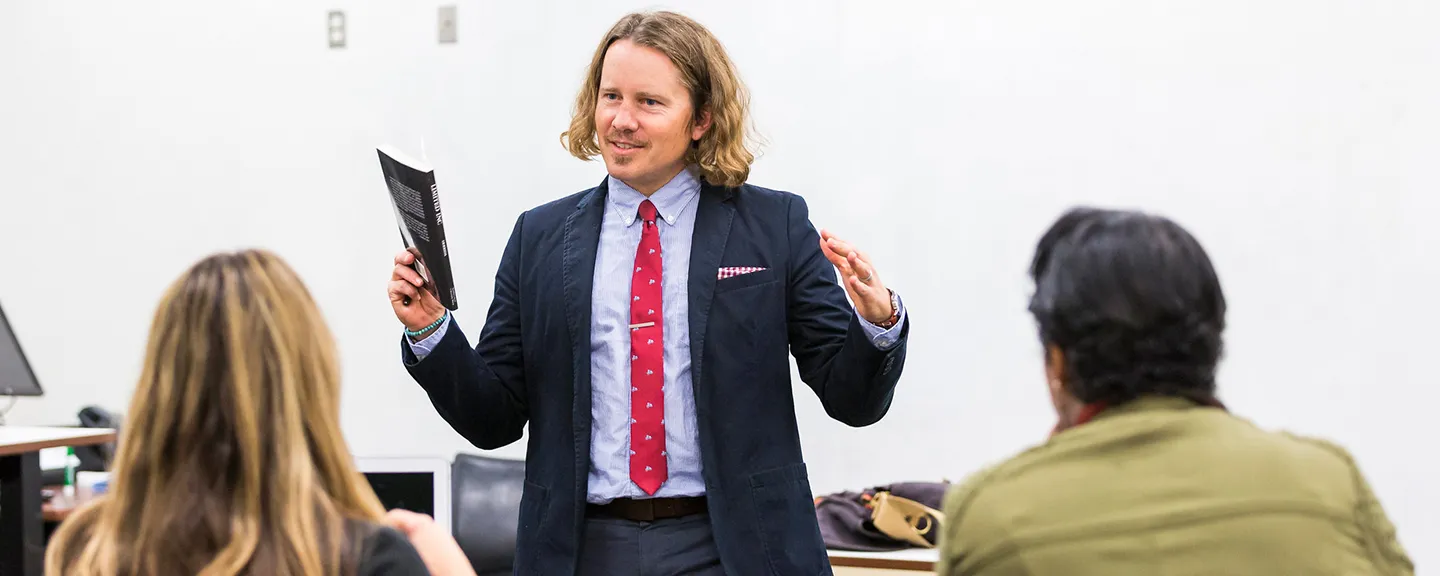- Home
- >
- APU Articles
- >
- News Article
Tips for Success: How to Ask for Advice from a Professor
August 01, 2022 | Written By Ben Kissam

Strong teacher-student relationships are correlated with better academic success, according to Education Week. Fostering a relationship during office hours—or at the beginning of class—could pay off even more when you start looking for a job.
Here are some tips for starting productive conversations with your college professors.
Take Fear Out of the Equation
Many students say they’re overwhelmed or intimidated by the prospect of talking to a professor one-on-one. But while it’s a common concern, it’s not necessarily grounded in reality.
After all, professors choose to work with and lead young adults for a living. The vast majority of them enjoy assisting, talking with, and getting to know their students.
You can take the fear out of meeting with a professor by thinking of it as a way to build relationships. You could enjoy potential outcomes like better grades, a deeper understanding of important subject matter, and even potential academic or spiritual mentorship.
If you’re still feeling overwhelmed or fearful, consider asking a friend to come with you.
“I encourage students to come with one another and host group or ‘paired’ office hours,” said Amy Tauati, MSW, an assistant professor and director of the BSW program in the Department of Social Work at Azusa Pacific University. “I find this helps students feel more comfortable and that they often continue to use office hours individually as needed.”
Connect with Your Professors in Class
If learning how to ask for advice from a professor seems intimidating to you, you can try to start building a relationship in class. Talking to professors in the presence of others could help you bridge the gap and make a one-on-one situation feel less daunting.
Active participation in class could also provide useful conversation starters. You could reference an event that took place in class, bring up a question you asked during the lecture, or confirm something you heard from another student. Additionally, sitting in the front row for a while (or permanently) can provide you with more opportunities to connect with your professors.
Prepare for Meetings
If you're confused about how to start talking with your professor, create a road map for how the conversation might go. This doesn’t have to be an extensive task. Simply spend a few minutes jotting down bullet points or even mentally walking yourself through the meeting.
To help you gain clarity, ask yourself questions like:
- What problem do I have that meeting with my professor could solve?
- What’s the ideal outcome or goal of sitting down with my professor?
- What questions do I hope they can answer?
If you start with the end in mind, you can get some clarity as to why you’re seeking help—and knowing your “why” can help you figure out how to ask for advice from a professor more easily.
Approach Conversations with Empathy
Empathy can be a game-changer for any conversation you have with a professor—especially if the subject matter could lead to a difficult or awkward situation.
“I often remind students that we were once in their shoes, and some of us continue to be students through advanced degree programs, continuing education, and professional development,” said Tauati.
An empathetic approach helps you get outside of your own immediate wants and needs. It allows you to see the situation (e.g., a bad grade or some sort of miscommunication) from the professor’s perspective, which may lead to insights or answers you hadn’t thought of before.
Think about Other Opportunities
Talking to your professors to see how they can benefit you is a great way to help you get out of your head and gather the courage to schedule that meeting or show up to in-person or online office hours. A professor who knows you and sees you taking initiative is far more likely to serve as a professional reference or write you a letter of recommendation that speaks to your individual qualities.
“I find it very helpful to know a student beyond the classroom when writing letters of recommendation to graduate school, jobs, or other post-graduation opportunities,” Tauati said.
So, take a deep breath. Map things out on paper or in your head if you think it will help. Then, schedule that appointment or show up to office hours—it’ll be worth it!
Want to learn more about building relationships with your professors? Check out these five tips for connecting with professors in an online learning environment.